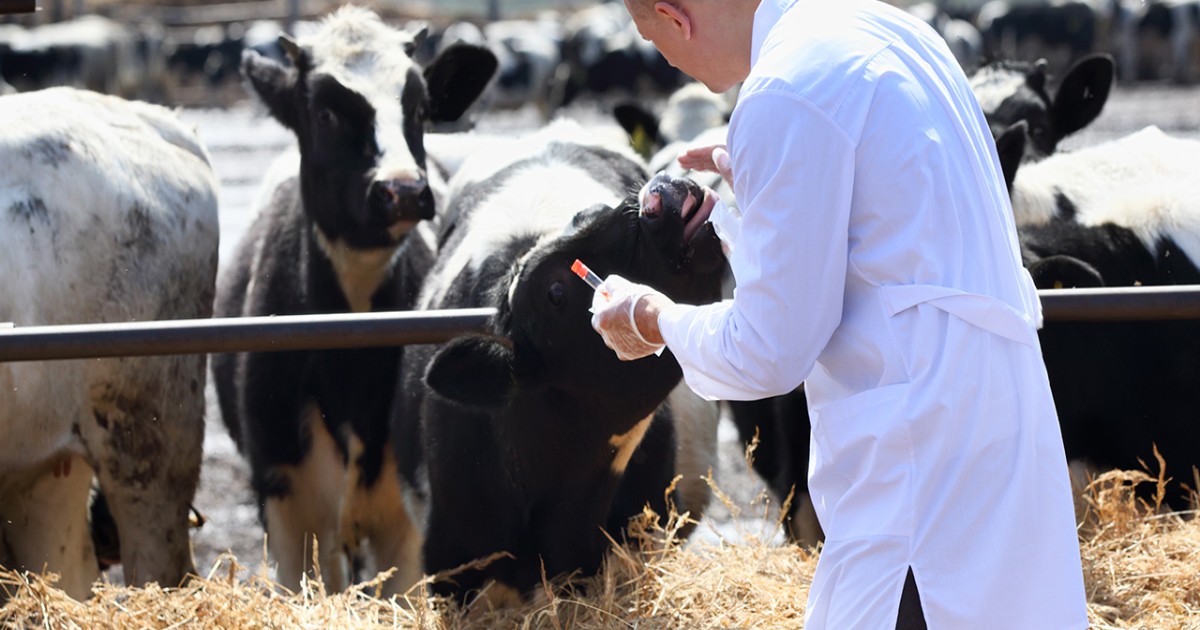Animal Poisoning and Nutritional Metabolic Diseases
A special issue of Veterinary Sciences (ISSN 2306-7381). This special issue belongs to the section "Nutritional and Metabolic Diseases in Veterinary Medicine".
Deadline for manuscript submissions: 20 May 2026 | Viewed by 115

Special Issue Editors
Interests: heavy metals; toxicology; mitochondria; animal poisoning diseases; nutritional metabolic diseases
Special Issues, Collections and Topics in MDPI journals
Special Issue Information
Dear Colleagues,
Animal poisoning and nutritional metabolic diseases have emerged as significant threats to animal health and productivity over the past few decades, with a growing incidence observed in both domestic and wild animal populations globally. While animal poisoning can occur in any environment, cases are particularly prevalent in agricultural regions due to exposure to pesticides, herbicides, and mycotoxin-contaminated feed, as well as in industrial areas where heavy metal pollution and chemical waste pose risks. Nutritional metabolism diseases, on the other hand, affect animals across diverse settings, from intensive livestock operations with imbalanced rations to wildlife struggling with habitat degradation that limits access to essential nutrients. Notably, animal poisoning and nutritional metabolism diseases often arise hand in hand—yet the pathogenic mechanisms driving their co-occurrence, along with tailored strategies for prevention and control, have remained understudied and inadequately addressed.
The overall focus of this Special Issue, “Animal Poisoning and Nutritional Metabolic Diseases”, is the interconnected nature of toxic exposures and nutritional metabolic disorders in animals. This Special Issue will cover a wide range of species, including poisoning-related aspects, nutritional metabolic diseases, and cross-cutting themes, with the purpose of consolidating research, bridging disciplinary gaps, and enhancing animal health. This Special Issue will supplement the existing literature by addressing the bidirectional relationships and real-world complexities often overlooked in isolated studies, promoting interdisciplinary collaboration to advance the understanding and management of animal poisoning and nutritional metabolic diseases.
Dr. Jianzhao Liao
Dr. Feiyang Ma
Guest Editors
Manuscript Submission Information
Manuscripts should be submitted online at www.mdpi.com by registering and logging in to this website. Once you are registered, click here to go to the submission form. Manuscripts can be submitted until the deadline. All submissions that pass pre-check are peer-reviewed. Accepted papers will be published continuously in the journal (as soon as accepted) and will be listed together on the special issue website. Research articles, review articles as well as short communications are invited. For planned papers, a title and short abstract (about 100 words) can be sent to the Editorial Office for announcement on this website.
Submitted manuscripts should not have been published previously, nor be under consideration for publication elsewhere (except conference proceedings papers). All manuscripts are thoroughly refereed through a single-blind peer-review process. A guide for authors and other relevant information for submission of manuscripts is available on the Instructions for Authors page. Veterinary Sciences is an international peer-reviewed open access monthly journal published by MDPI.
Please visit the Instructions for Authors page before submitting a manuscript. The Article Processing Charge (APC) for publication in this open access journal is 2100 CHF (Swiss Francs). Submitted papers should be well formatted and use good English. Authors may use MDPI's English editing service prior to publication or during author revisions.
Keywords
- toxic exposure
- nutritional imbalances
- animal poisoning
- nutritional metabolic diseases
- toxin–metabolism interplay
Benefits of Publishing in a Special Issue
- Ease of navigation: Grouping papers by topic helps scholars navigate broad scope journals more efficiently.
- Greater discoverability: Special Issues support the reach and impact of scientific research. Articles in Special Issues are more discoverable and cited more frequently.
- Expansion of research network: Special Issues facilitate connections among authors, fostering scientific collaborations.
- External promotion: Articles in Special Issues are often promoted through the journal's social media, increasing their visibility.
- Reprint: MDPI Books provides the opportunity to republish successful Special Issues in book format, both online and in print.
Further information on MDPI's Special Issue policies can be found here.







